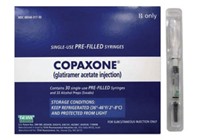Advertisement
Grab your lab coat. Let's get started
Welcome!
Welcome!
Create an account below to get 6 C&EN articles per month, receive newsletters and more - all free.
It seems this is your first time logging in online. Please enter the following information to continue.
As an ACS member you automatically get access to this site. All we need is few more details to create your reading experience.
Not you? Sign in with a different account.
Not you? Sign in with a different account.
ERROR 1
ERROR 1
ERROR 2
ERROR 2
ERROR 2
ERROR 2
ERROR 2
Password and Confirm password must match.
If you have an ACS member number, please enter it here so we can link this account to your membership. (optional)
ERROR 2
ACS values your privacy. By submitting your information, you are gaining access to C&EN and subscribing to our weekly newsletter. We use the information you provide to make your reading experience better, and we will never sell your data to third party members.
Analytical Chemistry
Supreme Court Affirms Patents
Intellectual property: Justices uphold high hurdle for proving a patent is invalid
by Glenn Hess
June 20, 2011
| A version of this story appeared in
Volume 89, Issue 25

The Supreme Court has rejected a bid by Microsoft to make it easier to challenge the validity of patents in litigation. The ruling is a victory for drugmakers and other businesses that rely on the strength of their patent portfolios.
The justices unanimously upheld a record $290 million verdict against the software giant for infringing a small Canadian company’s patent and affirmed a long-standing requirement that a defendant in an infringement case prove by clear and convincing evidence that a plaintiff’s patent is invalid (C&EN, June 13, page 27).
Microsoft had argued that a judge or jury should be able to overturn a patent if only a preponderance of the evidence indicates it is invalid, a lesser standard of proof.
The biotech sector “felt that this was maybe the most important patent case to go to the Supreme Court in a decade,” says Hans Sauer, associate general counsel for intellectual property at the Biotechnology Industry Organization (BIO), a trade association.
BIO saw the case as “a great threat because biotech, more than most industries, depends on patents as strong and enduring legal instruments that cannot be overturned on a mere coin toss,” Sauer tells C&EN. “You can’t have a sustainable biotech business without being able to rely on your patents to a stronger degree than just that for product development, investment, and partnering decisions,” he says.
The legal fight began in 2007 when Toronto-based i4i sued Microsoft. A district court jury found that Microsoft had infringed i4i’s patent relating to text manipulation software. After a federal appeals court upheld the award, Microsoft turned to the Supreme Court.
“Microsoft tried to gut the value of patents. It is now 100% clear that you can only invalidate a patent based on clear and convincing evidence,” says i4i Chairman Loudon Owen.
Justice Sonia Sotomayor wrote that any change in the standard of proof for patent invalidity would have to be made by Congress. She noted in the court’s opinion that the standard of clear and convincing evidence is nearly 30 years old and has been left untouched by lawmakers.



Join the conversation
Contact the reporter
Submit a Letter to the Editor for publication
Engage with us on Twitter